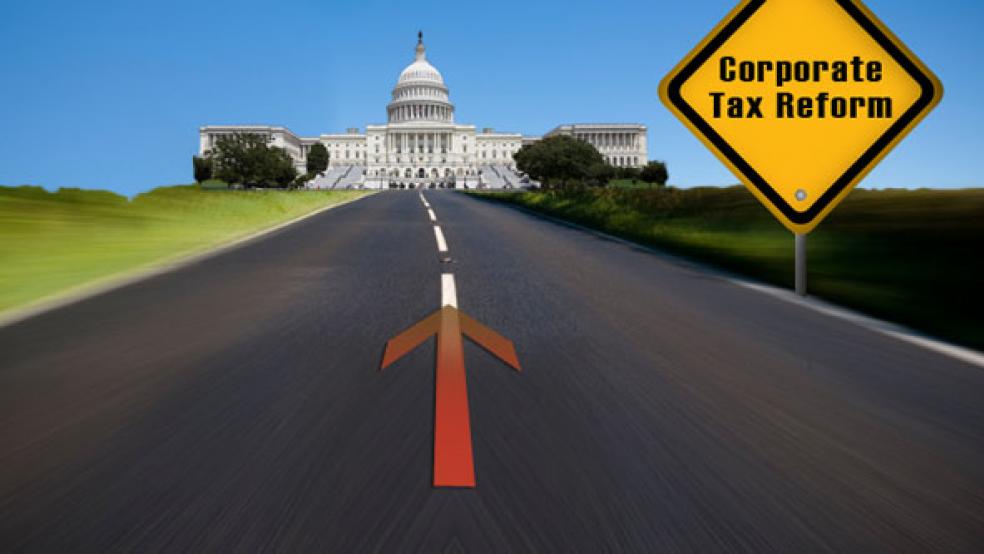President Obama intends to make one last pitch for a “grand bargain” of new spending and tax policy on Tuesday that will attempt to marry corporate tax reform with funding for jobs to benefit the middle class.

In a speech he will deliver in Chattanooga, Tenn., Obama will unveil a “grand bargain for middle-class jobs that would simultaneously cut the corporate tax rate and use billions in revenues generated by a comprehensive business tax overhaul to finance programs designed to create additional jobs,” according to the White House.
Obama will propose cutting the corporate tax rate of 35 percent down to 28 percent and give manufacturers a preferred rate of 25 percent, Reuters reported. He also wants a minimum tax on foreign earnings as a tool against corporate tax evasion and increased use of tax havens.
The chairmen of the House Ways and Means Committee and Senate Finance Committee are exploring a wide range of proposals for overhauling the federal tax code that would close costly loopholes to offset the cost of cutting corporate and individual rates. But until now the GOP has insisted that tax reform be “revenue neutral,” meaning no overall increase in revenue while Democrats are counting on additional revenues to fund their social programs.
In his speech today, Obama will offer what he hopes will be irresistible to many GOP lawmakers. That is, in exchange for his support for a corporate tax reduction, he wants money generated by the tax overhaul to be used on a mix of proposals. They include infrastructure projects like repairing roads and bridges, improving education at community colleges, and promoting manufacturing, senior administration officials said.
Jennifer Palmieri, the White House Director of Communications, told MSNBC this morning that while the administration continues to pursue a number of issues with congressional Republicans – including entitlement reform and additional deficit reduction -- “to date we haven’t had any sense that the Republicans are prepared to do any more in terms of new revenue.”
“What we’re saying is here is something we all agree upon,” she said. “Here is something that will really help the middle class. Here is something that will also help American businesses. Everyone agrees on it, so we should go ahead and pursue this bargain.”
But the proposal immediately met with a cool response from congressional Republicans. "This proposal allows President Obama to support President Obama's position on taxes and President Obama's position on spending, while leaving small businesses and American families behind," Boehner spokesman Michael Steel said in a statement.
With Congress scheduled to begin a five-week summer recess by the end of this week, prospects for any sort of major agreement on new spending and tax policy and resolution of a dispute over raising the $16.7 trillion debt ceiling seemed increasingly out of reach – and may still be.
As Obama hit the road again last week to try to rekindle interest in his economic policies, senior aides met twice with a group of eight Senate Republicans in search of a compromise on some of the issues that have divided the GOP and White House for months, the Wall Street Journal reported this week. Those talks were aimed at finding a way to pass new spending bills for the fiscal year that begins Oct. 1, cancel or rearrange the across-the-board spending cuts in defense and domestic discretionary programs and avert a possible government shutdown or default on U.S. borrowing this fall.
Obama’s goal, to be outlined in a speech at an Amazon facility in Chattanooga, is to break through congressional gridlock by finding a formula that satisfies both Republicans and Democrats.
Efforts to reach a bipartisan "grand bargain" on deficit reduction have been at an impasse for months. Senior administration officials say Obama is not giving up on a big deficit-cutting package, but given that no agreement appears on the horizon so far, he is offering a new idea to try to follow through on his 2012 re-election campaign promises to help the middle class.
"As part of his efforts to focus Washington on the middle class, today in Tennessee the president will call on Washington to work on a grand bargain focused on middle-class jobs by pairing reform of the business tax code with a significant investment in middle-class jobs," Obama senior adviser Dan Pfeiffer said.





